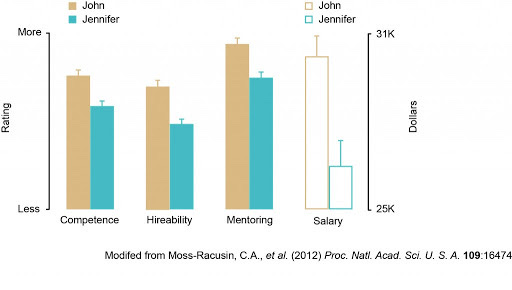A woman's place is...in the boardroom?
 by Nichola Hughes, Director of Sustainable Northern Ireland
by Nichola Hughes, Director of Sustainable Northern Ireland
On International Women's Day (8 March) we shine a spotlight on Sustainable Development Goal 5 - Gender Equality and the Empowerment of Women. In this blog, our Executive Director shares her thoughts on gender equality and her hopes and aspirations for the next generation.
As a millennial, I have benefitted from the generations of women that have gone before me, who campaigned tirelessly for equality laws that we now take for granted. The right to vote, the right to equal pay, and so on. But how progressive are we, really, when it comes to gender equality?
Inequality can take many forms, ranging from overt discrimination to the more subtle unconscious biases in everyday life that often go unnoticed, i.e. covert discrimination.
Discrimination is defined as ‘the unjust or prejudicial treatment of different categories of people, especially on the grounds of race, age, sex, or disability’. Equal opportunity laws in the UK mean that there is now a 'level playing field' so that people are employed, paid, trained and promoted only because of their skills, abilities and how they do their job. However, gender diversity and the underrepresentation of women in board rooms remains an issue to this day.
Changing times
At a young age, I learned that my grandmother who was born in 1912, overcame many gender barriers to secure a third level education. A feat not typical for women of that generation. She went on to enjoy a long career as a teacher, whilst also raising seven children and working on the family farm.
From a young age, I knew that I too wanted to be financially independent. Success would not be measured by income, I decided, but a sense of happiness and fulfilment.
 CREDIT: Daniel Pockett/ 2017 Getty Images
CREDIT: Daniel Pockett/ 2017 Getty Images
Having it all – a career and a family
I went through most of my twenties blissfully unaware of any gender bias in the workplace. However, when I first became pregnant I had coincidentally started a new job. When I told my manager that I was pregnant and saw the look of disappointment wash over his face, I realised my gender might have a bearing on my career after all.
My daughters are now in full-time childcare which, due to the cost of childcare, takes up most of my earnings. This is because unlike elsewhere in Europe, free childcare isn’t available in Northern Ireland until the age of 3 and even then, it's only for a couple of hours per day.
This means that new mums face a difficult choice: leave the workplace entirely for a few years, work part-time, or work full time for very little money in the hope that the short term investment will someday pay off.
Politicians argue that shared parental leave provisions level the playing field for men and women, but because men usually (not always) earn more than women, couples typically choose the most financially favourable option, which means in reality more mums take parental leave than dads. Until we have salary parity or fully funded childcare, women’s careers will continue to take the hit.
Positive discrimination
Sometimes inequality is disguised, in the form of positive discrimination. An employer is guilty of positive discrimination if they hire or seek an individual purely based on their protected characteristic, rather than experience or qualifications. Positive discrimination also includes setting quotas or benchmarks in the recruitment process or promoting a specific number of people within a minority group. In England, Scotland and Wales, positive discrimination is illegal under the Equality Act 2010 as it does not give equal treatment to all.
What is the debate over positive discrimination?
There have been calls in the past for an overhaul of laws regarding positive discrimination, in order to help level the playing field for underrepresented groups. Many women, however, feel positive discrimination laws that might tip the scales in their favour are completely self-defeating – that by commanding CEOs to promote women, merit-based promotions are being tainted and diminished. Not only does that weaken leadership, but it is also an insult to the qualified women who have made it to the top without any sort of handout.
I had my own experience of this when I was asked to join the Board of Trustees for a local charity. I was told I had been selected because they needed more women on their board. As time went on I wondered if the other women on the board had been selected on the basis of gender too, or if it was just me? This kind of casual discrimination should always be called out, as harmless as it may seem, otherwise the cycle will continue.


Do gender quotas work?
Quotas might work in terms of shining a spotlight on gender inequality and getting numbers up to where they should be, but they are not the solution to getting more women on boards. The solution is complex and requires change from within boards themselves, corporate executives and from women.
Meritocracy should prevail, but it doesn’t in reality because we live in a biased world. All that a woman can do is take advantage of the opportunity when it presents itself, and then in our newfound positions of power, influence decision making and challenge discriminatory practices and unconscious biases from the top.
The tide is changing though, Generation Z will, we are told, be much more vocal and expect better in the workplace.
Here’s hoping anyway!

